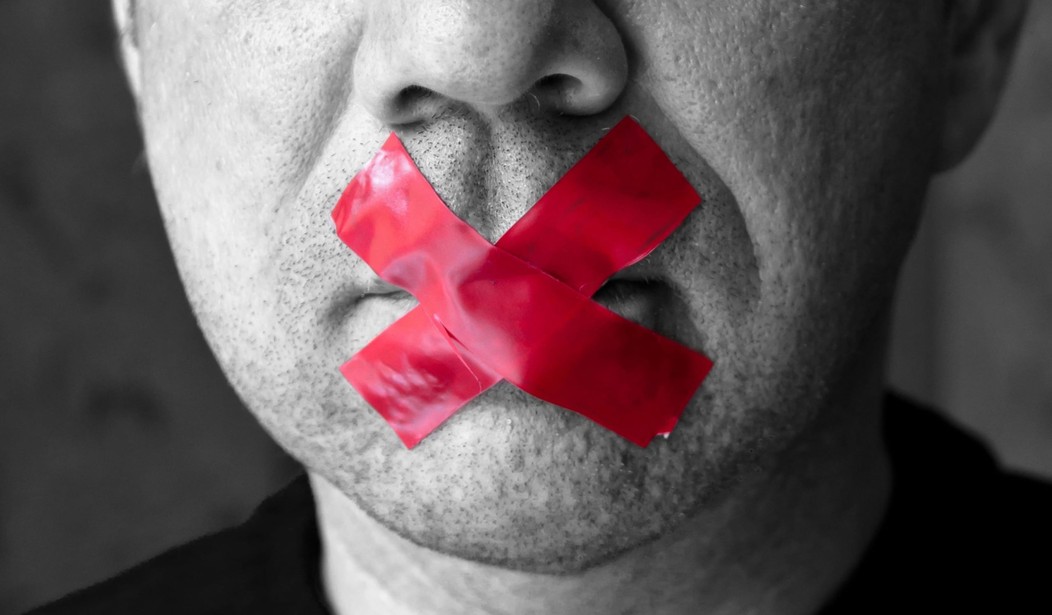An Indiana school district is under fire for writing a policy that parents and the ACLU say is a violation of their First Amendment rights and an attempt to shield the board from legitimate criticism. The North West Hendricks School Corporation’s “Parent Code of Conduct ” says parents shall not “use Facebook or any other Social Network to make rude/offensive comments towards individual staff members or the school in general.” It goes on to outlaw the use of “Facebook or any other Social Network to campaign against or fuel outrage against individual staff members, the school, or policies implemented by the school or district.” If a parent is in violation of these rules they can be banned from school property and events, according to the policy.
This school board seems to have forgotten that public schools and their boards are government agencies and they are prohibited by the Constitution of the United States from establishing any rule that infringes on the public’s right to free speech. Yet, trying to curtail the public’s ability to embarrass public officials is a common tactic by thin-skinned public boards with royalty complexes. I wrote a book detailing the Orland Park Public Library board in Illinois attempting to do the exact same thing to the public who wanted to criticize their computer policies that allowed men to access graphic adult material in front of children. They were sued and lost a big chunk of money for violating several state laws, including curtailing free speech.
Public boards that try this should always be challenged and the ACLU in Indiana has jumped in. Legal Director Ken Falk told WRTV, “I think this is flagrantly unconstitutional,” Falk said. “The overarching problem is you have the government saying if we don’t like what you’re saying, we can punish you — but the government is not allowed to do that. That’s why we have the First Amendment.”
It’s just that simple. The policy is a gross violation of the First Amendment and the board should not only never try to enforce it, but should strike it from its handbook and everyone responsible for its creation should resign in disgrace. “I think the existence of the policy itself is a First Amendment violation,” Falk said. “If a parent contacts us and says, ‘This policy is in effect and I feel constrained by what I say on social media,’ they’ve been damaged, and we can file a lawsuit against the school.” And it’s a slam dunk winner.
While a school can ask the public to be polite, it certainly can’t enforce punishments if they aren’t. Further, what prompted the policy was that a teacher at the school is accused of sexual misconduct with a student and parents have been very critical in regards to how the school board dealt with the ongoing investigation. Not enjoying the extra criticism they were receiving, the board decided to try to illegally gag the vocal parents.
After media attention, the board subtly walked back their position claiming they were talking about what is allowed on the school’s social media, although the policy clearly refers to all social media and not one specific account. “NWHSC is concerned with policing its social media platforms only and reserves the right to determine what is acceptable there,” spun Donna Petraits, the district’s spokesperson. “As for social media and the First Amendment, no action has or will be taken regarding what others may say or share on social media, but encourages civility in all forms of discourse.”
A government body may encourage “civility” but the term itself is subjective and they have no right to dictate the content or tone of the public’s speech.
Tiffani Mathews has been a vocal critic of the school’s decision to keep the accused teacher on the payroll and believes the policy was meant to intimidate parents like her. “They’re trying to silence us from speaking out against them,” she said. “Social media is the way to get the word out there that, ‘Hey, this isn’t being handled properly.'”
Mathews says that fear is spreading throughout the community. “There are a lot of people who are afraid,” Mathews said. “It’s either going to be retaliation against their children or against the parents.” This chilling effect is exactly why the right to be free from government censorship is enshrined in the Constitution.
Update Jan. 14, 1:23 p.m: Donna Petraits, communications consultant for North West Hendricks School Corporation, reached out to PJ Media to try to defend the school’s position.
The school board moved their November and December meetings to a venue larger than their boardroom to provide more space for community members wishing to attend and address the board. In addition, the board suspended the usual 2 minute time limit for speakers wishing to address the board, because the district recognized the need for the community to be heard. NWHSC has also established an FAQ and dedicated email, so that patrons can ask questions and get the “correct” information.
5. Use Facebook or any other Social Network to make rude/offensive comments towards individual staff members or the school in general.6. Use Facebook or any other Social Network to campaign against or fuel outrage against individual staff members, the school, or policies implemented by the school or district.
These two lines are what landed the district in hot water. They are blatantly unconstitutional attempts to silence public criticism through social media. No one has argued that the school does not have the right to govern public behavior on its premises. It is strictly the social media aspect of the policy that is under fire—by the ACLU of Indiana, no less.
Petraits also wrote, “NWHSC wants to assure stakeholders that it has no authority nor ever had the intent to police social media beyond its own. NWHSC is concerned with policing its social media platforms only and reserves the right to determine what is acceptable there. That said, comments on NWHSC media considered abusive, profane, intimidating, rude or offensive will be deleted and the poster potentially blocked from further comment.”
That’s the first reasonable statement relating to this policy. A public school board has no authority over parents to curtail their speech on their own social media platforms. But the wording of the policy attempts to do that, and pretending to be shocked that people misinterpreted it to mean they would be punished for posting criticism about the school online seems contrived. When the school board rewrites this thing, they need to make it clear that they are only policing their own social media and no one else’s. That was not clear on their policy. On the contrary, it implied that all of social media was at issue. Petraits can claim until the cows come home that the board had no intent to write such a bad policy, but write it they did. While it is still written in such a way, they are open to lawsuits by parents who feel they’ve been punished due to their critique of school business on social media.
Megan Fox is the author of “Believe Evidence; The Death of Due Process from Salome to #MeToo” and host of “The Fringe” podcast on PJ Media VIP. Follow on Twitter @MeganFoxWriter










Join the conversation as a VIP Member